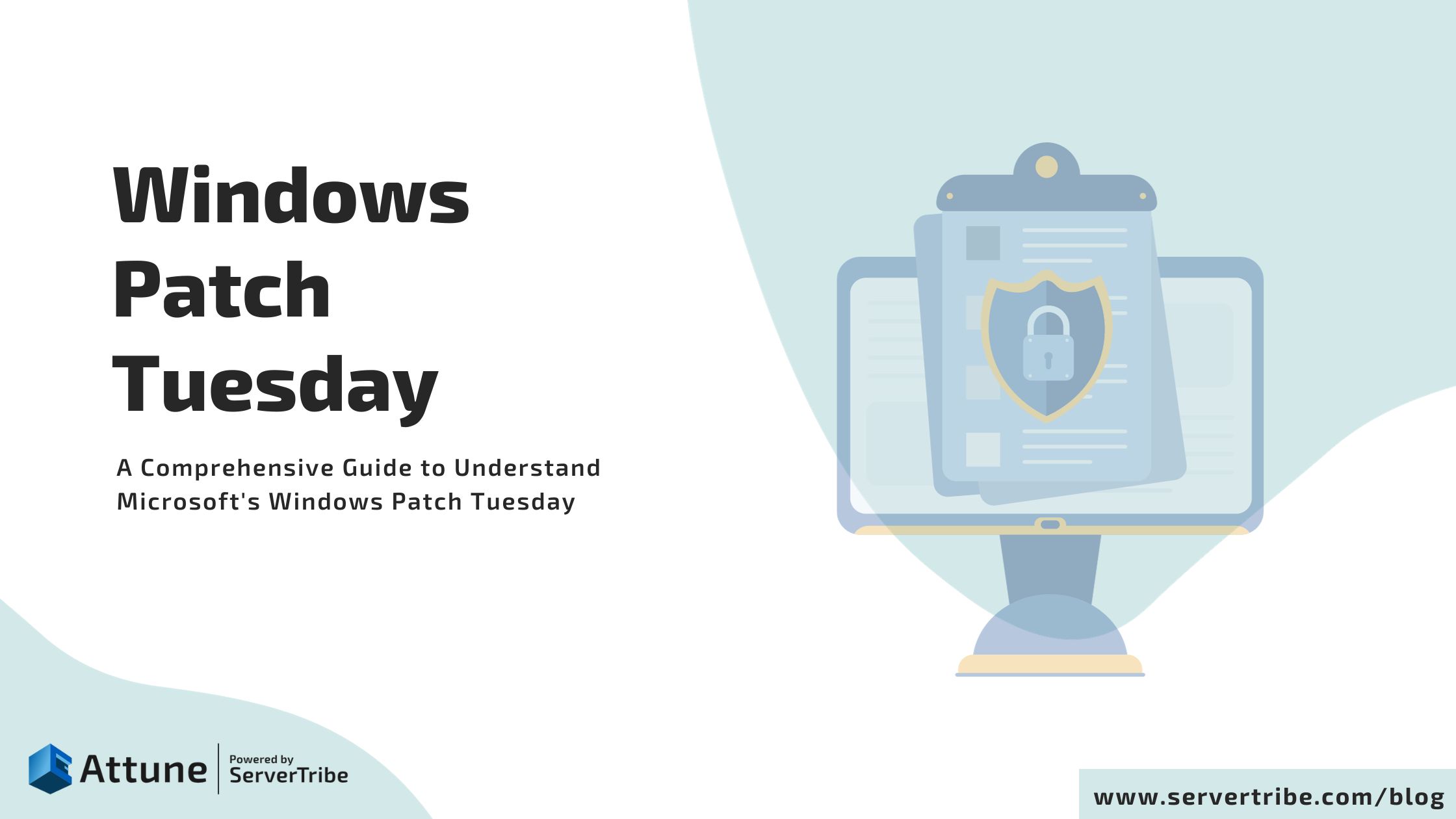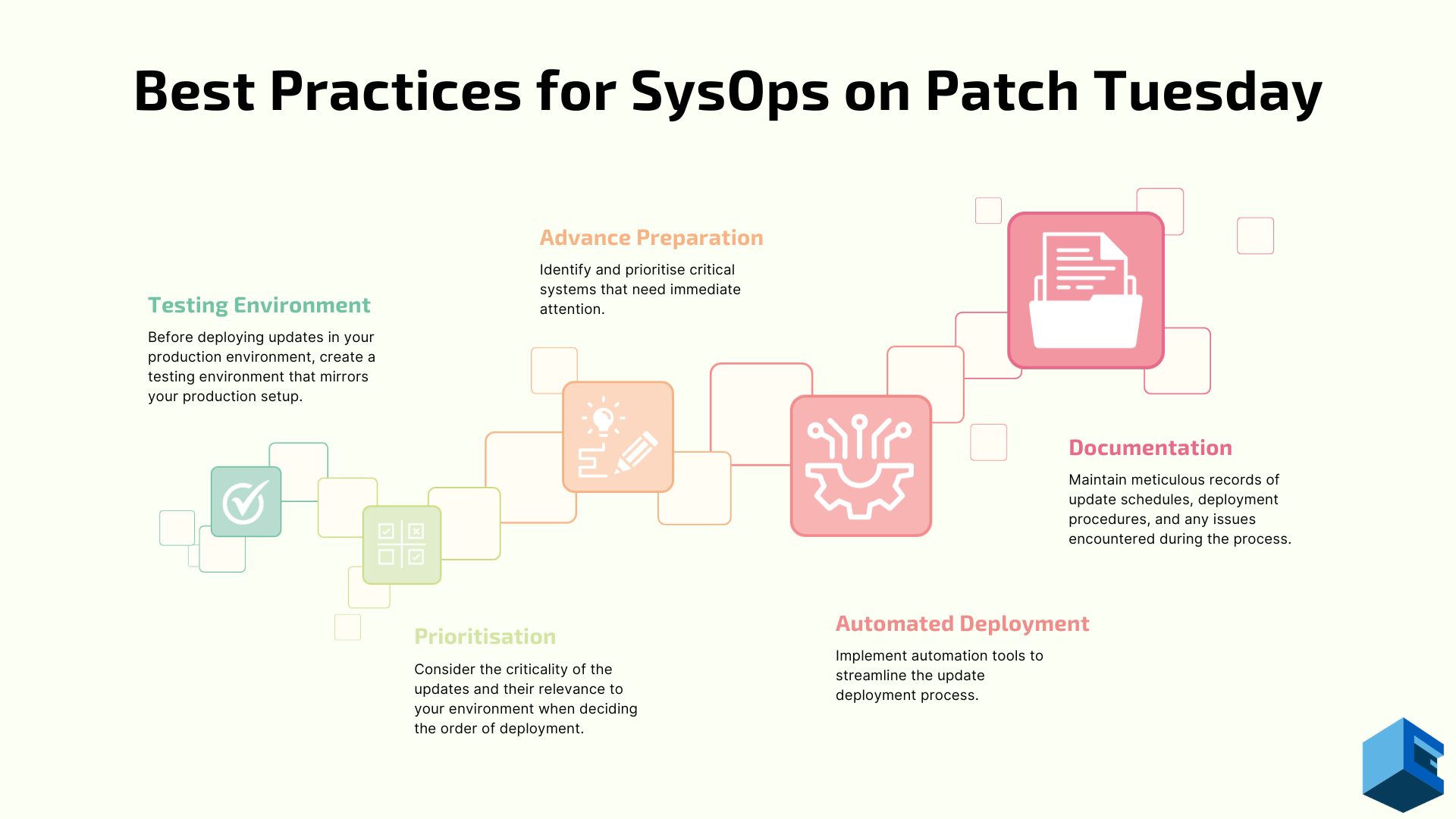
A Comprehensive Guide to Understand Microsoft’s Windows Patch Tuesday
Microsoft’s Patch Tuesday was inaugurated in 2003 and has consistently occurred on the second Tuesday of every month since its inception.
Patch Tuesday plays a pivotal role in ensuring the Windows operating system’s health and security. As a System Administrator, staying informed and implementing these updates effectively is crucial for safeguarding your organisation’s assets.
In this article, we will explore the concept of Patch Tuesday, its importance, and best practices for managing Windows updates within your IT environment.

Understanding Patch Tuesday
Patch Tuesday is a Microsoft initiative that occurs on the second Tuesday of each month. On this day, Microsoft releases a bundle of updates, patches, and security fixes for its various products.
Key Components of Patch Tuesday:
Security Updates: These address vulnerabilities that could be exploited by malicious software or cyberattacks. They include patches for Windows, Microsoft Office, and other Microsoft software.
Non-Security Updates: This category includes bug fixes, feature enhancements, and quality improvements, ensuring the stability and reliability of the Windows OS.
Cumulative Updates: Microsoft has shifted to releasing cumulative updates, which include both security and non-security fixes. This approach simplifies the update process and ensures that systems are always up to date with the latest patches.
Interesting Fact: The choice of Tuesday for Patch Tuesday updates was deliberate, allowing System Administrators ample time to resolve any issues introduced by the updates before the weekend.
Why Patch Tuesday Matters
Security: Cyber threats are ever-evolving. Timely installation of security updates is essential to protect your systems from vulnerabilities and potential exploits.
Stability: Non-security updates improve system reliability, reduce errors, and enhance overall performance.
Compliance: Many industries have specific regulatory requirements for timely updates and patch management. Compliance with these standards is essential to avoid legal issues.
What is Exploit Wednesday
In the tech industry, the day following Patch Tuesday is commonly known as “Exploit Wednesday.” During this period, vulnerabilities that were patched on Tuesday become publicly known, making it a critical time for security teams as attackers gain insight into potential weaknesses.
Best Practices for SysOps on Patch Tuesday
Advance Preparation:
Monitor Microsoft’s Security Update Guide to get a sneak peek at what updates are coming.
Identify and prioritise critical systems that need immediate attention.

Testing Environment:
Before deploying updates in your production environment, create a testing environment that mirrors your production setup.
Test updates thoroughly to ensure they do not conflict with existing applications or configurations.
Prioritisation:
Consider the criticality of the updates and their relevance to your environment when deciding the order of deployment.
Begin with less critical systems to minimise potential disruptions.
Automated Deployment:
Implement automation tools, such as Attune and Windows Server Update Services (WSUS) to streamline the update deployment process.
Documentation:
Maintain meticulous records of update schedules, deployment procedures, and any issues encountered during the process.
Rollback Plan:
Always have a rollback plan in place in case an update causes unexpected issues. Be prepared to uninstall the update if necessary.
Communication:
Inform end-users or relevant stakeholders about upcoming maintenance windows and the importance of applying updates promptly.
Monitoring:
After deployment, monitor systems for any unexpected issues or performance degradation. Address them promptly.
Stay Informed:
Keep abreast of emerging threats and vulnerabilities by subscribing to Microsoft’s Security Update Guide and other relevant sources.
Conclusion
Microsoft’s Patch Tuesday is an essential element of maintaining a secure and stable Windows environment. As a System Administrator, your role in managing these updates cannot be understated. By understanding the significance of Patch Tuesday, being proactive in your approach, and following best practices, you can ensure the integrity and security of your organisation’s systems while staying compliant with industry standards. Regularly scheduled updates, paired with diligent monitoring and contingency planning, are the key to a successful Patch Tuesday strategy.

Comments